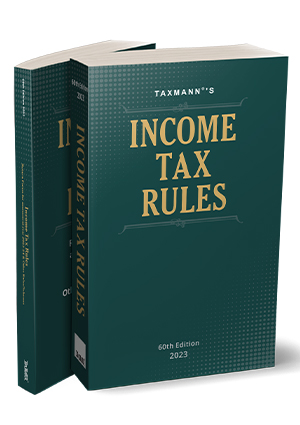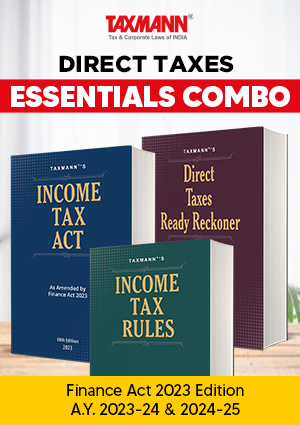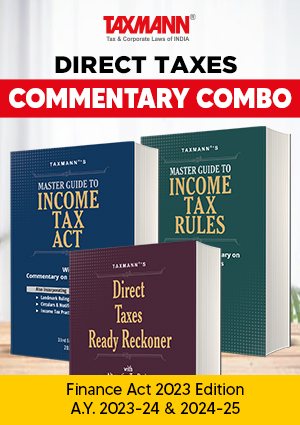No Question of Law Arises if Assessee Failed to Establish Basic Ingredients Required to Be Established u/s 68 | HC
- Blog|News|Income Tax|
- 2 Min Read
- By Taxmann
- |
- Last Updated on 17 May, 2024
 Image
Image
Case Details: Balgopal Merchants (P.) Ltd. vs. Principal Commissioner of Income Tax - [2024] 162 taxmann.com 465 (Calcutta)
Judiciary and Counsel Details
-
- T.S. Sivagnanam, C.J. & Hiranmay Bhattacharyya, J.
- J.P. Khaitan, Sr. Adv., Pratyush Jhunjhunwala, Ms Sretapa Sinha, & Samit Rudra, Advs. for the Appellant.
- Om Narayan Rai, Sr. Adv. Soumen Bhattacharjee, Adv. for the Respondent.
Facts of the Case
The assessee, a private company, was incorporated on 29.06.2011 and filed the return of income for the assessment year 2012-13. During the previous year, the assessee raised share capital along with a security premium. The case was selected for scrutiny, and notices under Section 143(2) and 142(1) were issued. In response to the notice, the assessee’s authorised representative appeared and filed the details as requested.
Unsatisfied with the response, the AO issued summons under Section 131 to the directors of the assessee. The summons required them to produce proof of identity/PAN, a list of companies where the directors were directors or shareholders, proof of acknowledgement of filing personal income tax returns, copies of the accounts, etc. Since the assessee failed to comply with the summons, the AO completed the assessment under Section 143(3) by adding the share capital amount under Section 68.
The CIT(A) and the Tribunal confirmed the additions. Aggrieved by the order, the assessee filed the present appeal before the Calcutta High Court.
High Court Held
The Court held that the assessee was incorporated in June 2011 and was in the first year of its operation. On examining the facts, it was found that the assessee had no track record or asset base for demanding an astronomical high premium per share, defying all commercial and financial prudence and logic.
There was no noticeable business activity or book value/earnings per share, which can justify the very high share premium. The assessee had admitted that the companies to whom the shares were issued at a premium were its associates. However, there was no explanation as to why the shares were allotted to the companies with such a high premium per share while the shares were allotted to individuals without any premium.
Further, the assessee had failed to establish that it had actively involved itself in the development of land. Thus, charging such a premium was illogical, and there was no basis for fixing such an amount. There was nothing to indicate the identity, creditworthiness of the shares subscribers, or genuineness of the transactions.
Since the assessee failed to establish the basic ingredients required to be established under section 68, no question of law arose for consideration.
List of Cases Referred to
-
- Income Tax v. Precision Finance Private Limited 2008 ITR 465 (para 5)
- Shankar Industries v. CIT [1978] 114 ITR 689 (Calcutta) (para 14)
- CIT v. Nipun Builders & Developers (P.) Ltd.* [2013] 30 taxmann.com 292/256 CTR 34/350 ITR 407/214 Taxman 429 (Delhi) (para 14)
- Pr. CIT v. Swati Bajaj [2022] 139 taxmann.com 352/446 ITR 56/288 Taxman 403 (Calcutta) (para 14)
- A. Govindarajulu Mudaliar v. CIT [1958] 34 ITR 807 (SC) (para 18)
- Yadu hari Dalmia v. CIT [1980] 17 CTR 234/126 ITR 48/4 Taxman 525 (Delhi) (para 19).
Disclaimer: The content/information published on the website is only for general information of the user and shall not be construed as legal advice. While the Taxmann has exercised reasonable efforts to ensure the veracity of information/content published, Taxmann shall be under no liability in any manner whatsoever for incorrect information, if any.

Taxmann Publications has a dedicated in-house Research & Editorial Team. This team consists of a team of Chartered Accountants, Company Secretaries, and Lawyers. This team works under the guidance and supervision of editor-in-chief Mr Rakesh Bhargava.
The Research and Editorial Team is responsible for developing reliable and accurate content for the readers. The team follows the six-sigma approach to achieve the benchmark of zero error in its publications and research platforms. The team ensures that the following publication guidelines are thoroughly followed while developing the content:
- The statutory material is obtained only from the authorized and reliable sources
- All the latest developments in the judicial and legislative fields are covered
- Prepare the analytical write-ups on current, controversial, and important issues to help the readers to understand the concept and its implications
- Every content published by Taxmann is complete, accurate and lucid
- All evidence-based statements are supported with proper reference to Section, Circular No., Notification No. or citations
- The golden rules of grammar, style and consistency are thoroughly followed
- Font and size that’s easy to read and remain consistent across all imprint and digital publications are applied




